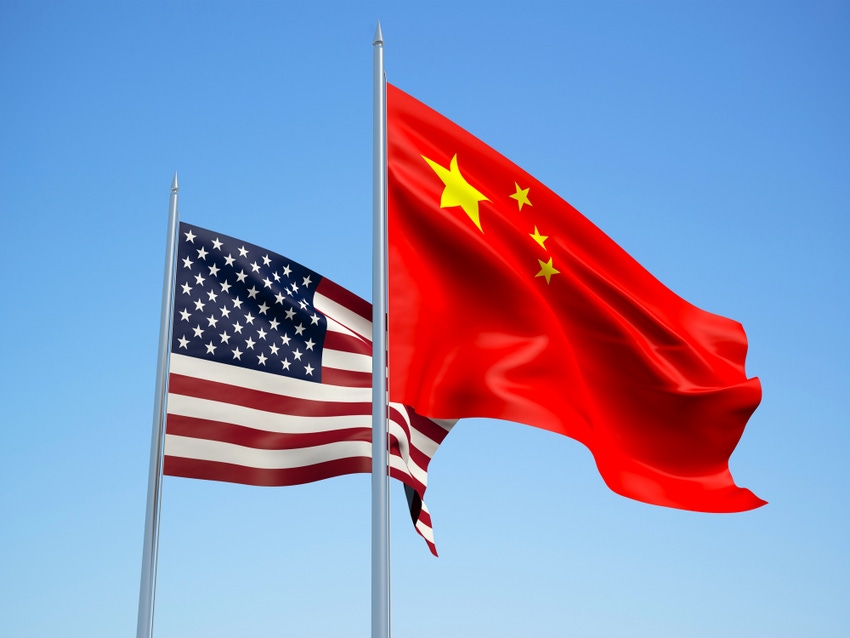
by Bloomberg News
As 100 days of trade talks between the two largest economies rumble to a close, Chinese officials and executives have been roaming the farmland of Iowa and doing what might appeal to U.S. President Donald Trump most: deals.
Contracts signed Thursday -- for the import of 12.5 million tons of U.S. soybeans and 371 tons of pork and beef -- can be seen as another result of the renewed economic-diplomacy push started by Trump and Chinese President Xi Jinping at their April meeting in Florida.
Talks are yielding progress: China is buying American beef again after a 14-year ban, approving more biotech products, and increasing U.S. natural gas imports. But if the nations are to make any meaningful dent in the $347 billion U.S. deficit that’s the object of Trump’s ire, they may have to keep negotiating beyond the modest agreements already signed.
"Deals such as the soybeans definitely create favorable conditions for negotiations," said Gai Xinzhe, an analyst at Bank of China’s Institute of International Finance in Beijing. "Trump is a businessman and loves making deals. These will give Trump something he can announce at home. But ultimately it’ll take a very long time to resolve the trade imbalance."
The two nations have been working on "very major trade components," Trump said at a press conference in Paris this week. But there still may be hiccups in the relationship: he has threatened tariffs or quotas on steel imports, which may hurt China and other nations.
Chinese officials have indicated the 100-day talks will be extended to stretch over a year. Meanwhile, the Comprehensive Economic Dialogue, led by Chinese Vice Premier Wang Yang, U.S. Treasury Secretary Steven Mnuchin, and Commerce Secretary Wilbur Ross, will kick off its first round on July 19.
The CED is a new framework for trade and economic negotiations that revamps the preceding Strategic and Economic Dialogue, which was formalized during the Obama administration, and the longstanding Joint Commission on Commerce and Trade. Both have drawn criticism for involving too many people and too few results.
China’s exports to the U.S. rose 19.8% in June from a year earlier, Bloomberg calculations show. Imports climbed 14.8%, leaving the monthly trade surplus at $25.4 billion and the year-to-date figure at $117.5 billion.
The CED will sum up the achievements of the 100-day trade talks and discuss what lies ahead for the one-year plan, Gao Feng, a spokesman for the Ministry of Commerce said at a press conference on Thursday. The two sides will also talk about economic coordination, global economic governance, and trade and investment issues, he said.
"The 100-day is mostly about deals, say you import this and we export that, but the CED should cover more ground, and more profound issues," said Gai. It’s unclear whether China will be as active in the CED as in the past 100 days, he said, adding that “everyone is looking forward” to the difference the new dialogue could make.
Agriculture, Chemicals
In future talks, China is likely to strike more deals with the U.S. in agriculture, chemicals and tech, while opening more service sectors including accounting, advertising and law, Wang Hanfeng, an analyst at China International Capital Corp. in Shanghai, wrote in a recent note.
The Asian nation is also likely in following negotiations to reduce tariffs and lower market barriers for American companies while seeking more access to U.S. infrastructure construction, they wrote.
In a May report, the Commerce Ministry said it wants to increase U.S. agricultural imports such as soybeans and cotton, along with American energy products such as liquid natural gas, crude oil and refined oil, plus aircraft, integrated circuits and machine tools.
"China has done its utmost to try to offset the trade surplus with the United States, in addition to promises of more imports of meat and soy, and there’s potential for China to expand grain imports," said Li Qiang, chief analyst with Shanghai JC Intelligence Co. Ltd, a private agriculture consulting firm. Li also argued that the U.S. side also have to make concessions to ensure "successful outcomes."
To contact Bloomberg News staff for this story: Miao Han in Beijing at [email protected]; Niu Shuping in Beijing at [email protected]; Sarah Chen in Beijing at [email protected]
To contact the editors responsible for this story: Jeffrey Black at [email protected]
Jeff Kearns
© 2017 Bloomberg L.P
About the Author(s)
You May Also Like




